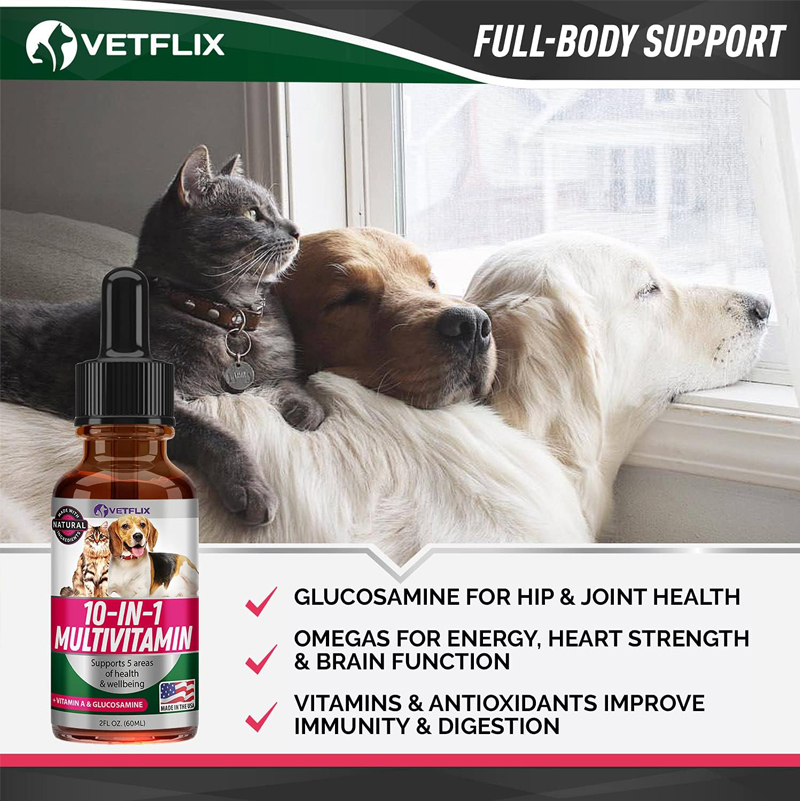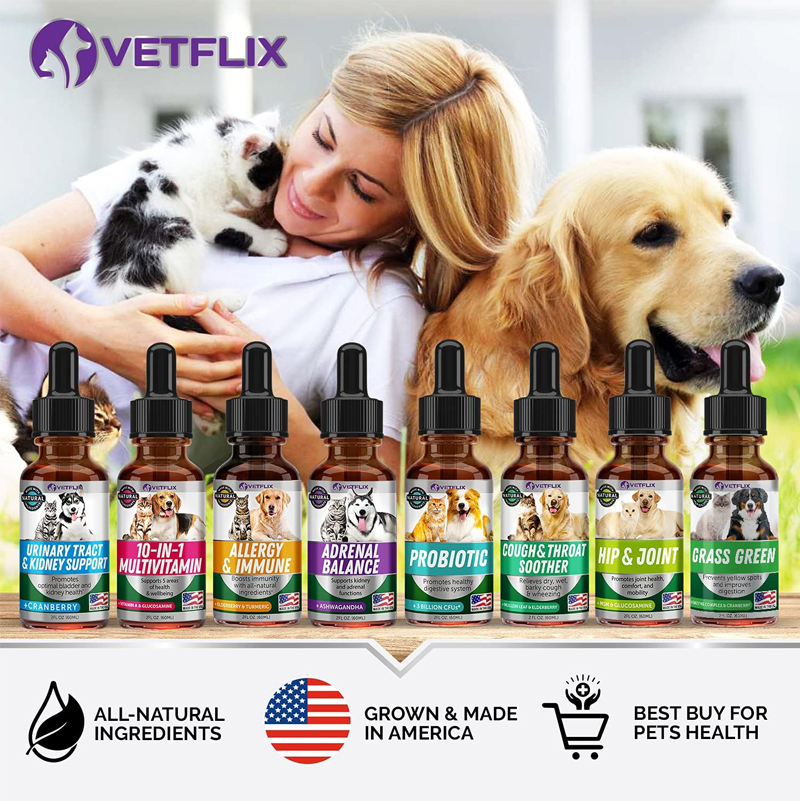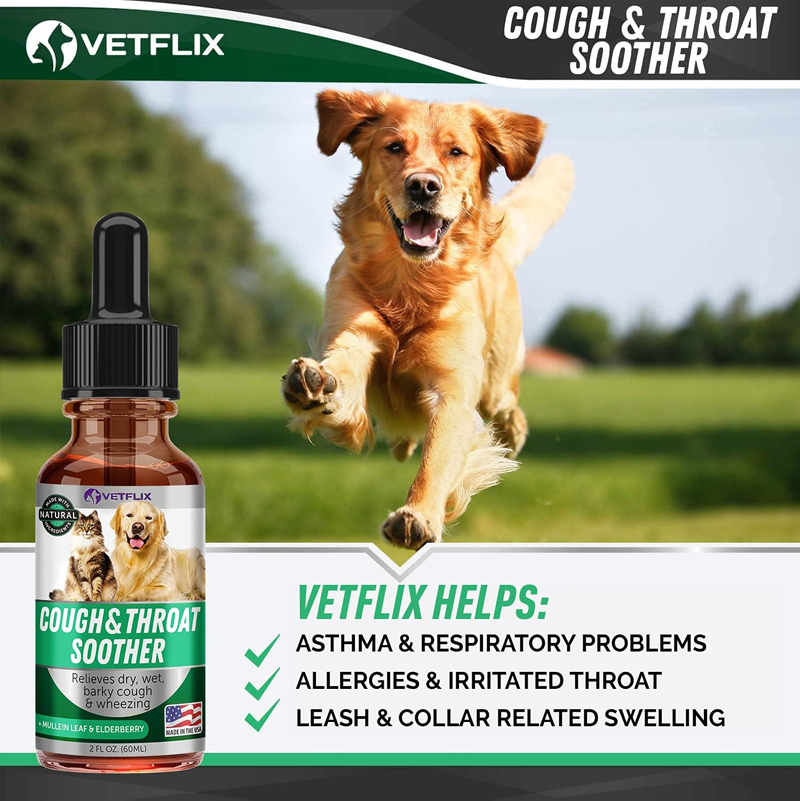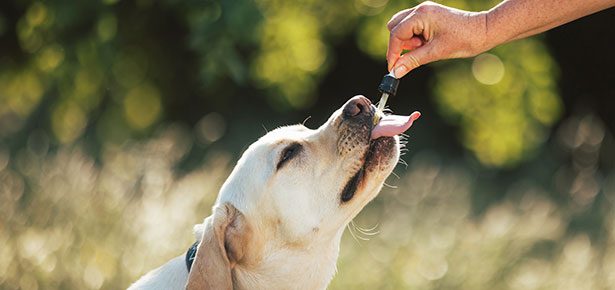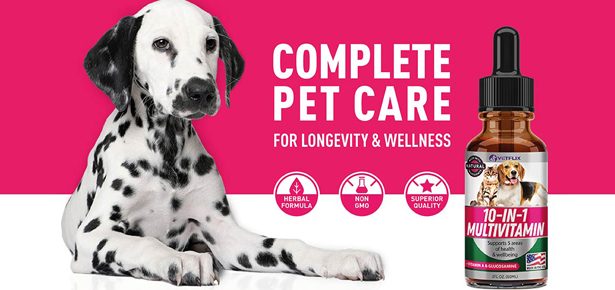
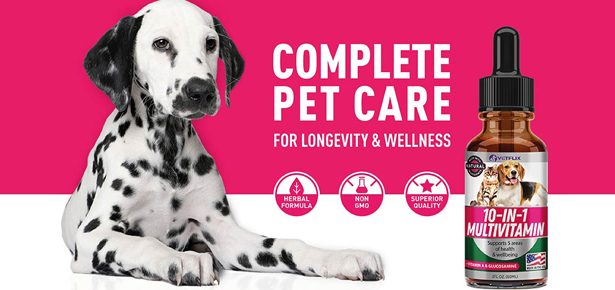
Pet Health Guide: Keeping Your Furry Friend Happy and Healthy
Learn how to keep your pet healthy and happy with this comprehensive guide. From regular veterinary visits to proper nutrition and exercise, discover essential tips and information for maintaining your pet's health and well-being.
In partnerhip with Vetflix
Introducing a new pet into your household is a delightful experience, yet it entails a multitude of duties. Among these crucial tasks is safeguarding your pet's well-being and overall health. From regular veterinary visits to suitable nourishment, there are a plethora of measures you can undertake to maintain your fuzzy companion's happiness and vitality. This resource will equip you with valuable insights concerning the fundamentals of pet health.
Regular Veterinary Visits
Importance of Regular Veterinary Visits
Consistent appointments with a veterinarian are vital for preserving your pet's health and well-being. Throughout these consultations, the vet will conduct a thorough physical assessment, inspect for indications of sickness, and administer required vaccinations. Moreover, these visits enable your veterinarian to identify potential health concerns in their early stages, resulting in more successful treatment.
What to Expect During a Veterinary Visit
During a veterinary consultation, the vet will examine your pet's eyes, ears, nose, mouth, skin, and coat. They will also assess your pet's heart and lung performance and check their abdomen for any anomalies. If required, the veterinarian may recommend further diagnostic measures, such as blood analysis or X-rays.
Indications Your Pet Should Visit a Vet
Closely monitoring any alterations in your pet's behavior or health is crucial. Indications that your pet might need a veterinarian's attention include:
- Loss of appetite
- Vomiting or diarrhea
- Lethargy or depression
- Difficulty breathing
- Excessive thirst or urination
- Coughing or sneezing
- Skin irritation or hair loss
- Changes in behavior or temperament
Vaccinations
Vaccinations hold paramount importance in preserving pet health. They defend your pet against grave ailments and disorders, some of which could be fatal. Moreover, immunizations support community health by hindering the spread of contagious diseases.
Immunization Plan
The ideal vaccination timetable for your pet will rely on factors such as their age, way of life, and current health condition. Discuss with your veterinarian to determine the optimal vaccination schedule tailored to your pet. A few prevalent vaccinations for dogs consist of:
- Rabies
- Distemper
- Parvovirus
- Bordetella
- Leptospirosis
- Lyme disease
For cats, common vaccinations include:
- Rabies
- Feline viral rhinotracheitis
- Calicivirus
- Feline panleukopenia
- Feline leukemia virus
Vaccine Side Effects
After getting vaccinated, some pets might exhibit mild side effects, including fatigue, elevated temperature, or discomfort at the site of injection. Severe side effects are uncommon but possible. Should you observe any atypical behavior or signs in your pet post-vaccination, promptly reach out to your veterinarian.
Diet and Nutrition
Sufficient nutrition is vital for your pet's health and overall wellness. A balanced diet provides the necessary nutrients needed for your pet's development and assists in maintaining a proper weight. Additionally, it can enhance their immune system and ward off particular health problems.
Well-balanced Nutrition for Your Pet
Your pet's nutritional requirements are contingent upon factors such as age, size, and activity level. Generally, a balanced diet for dogs ought to comprise:
- High-quality protein
- Healthy fats
- Complex carbohydrates
- Minerals and vitamins
- For cats, a balanced diet should include:
- High-quality protein
- Healthy fats
- Limited carbohydrates
- Minerals and vitamins
Foods to Avoid
Certain foods can be harmful or even toxic to your pet. Foods to avoid include:
- Chocolate
- Grapes and raisins
- Onions and garlic
- Avocado
- Alcohol
- Caffeine
- Fatty or spicy foods
Signs Your Pet's Diet Needs Adjustment
If your pet is not getting the proper nutrition, you may notice signs such as:
- Weight gain or loss
- Dull coat
- Digestive issues
- Lack of energy
- Behavioral changes
Talk to your veterinarian if you notice any of these signs, as they may recommend a change in diet or additional supplements.
Exercise and Activity
Regular physical activity is paramount for your pet's physical and mental welfare. Exercise can assist in maintaining an ideal weight, promoting cardiovascular health, and easing stress and anxiety.
Benefits of Exercise
The benefits of exercise for your pet include:
- Stronger muscles and bones
- Improved digestion
- Better sleep
- Reduced risk of obesity and related health issues
- Increased socialization and bonding with humans and other pets
Types of Exercise for Your Pet
The nature and duration of exercise required for your pet will vary based on their age, breed, and energy levels. Some popular forms of exercise for dogs encompass:
- Walking or jogging
- Swimming
- Playing fetch or tug-of-war
- Agility training
- Dog sports like flyball or dock diving
For cats, exercise can include:
- Playtime with toys
- Climbing and scratching posts
- Interactive games with humans or other pets
Signs Your Pet Needs More Exercise
If your pet is not getting enough exercise, you may notice signs such as:
- Excessive barking or meowing
- Destructive behavior
- Weight gain
- Hyperactivity or restlessness
- Talk to your veterinarian about an appropriate exercise routine for your pet.
Grooming and Cleanliness
Consistent grooming and maintaining hygiene are crucial for your pet's health and overall well-being. Grooming can help avert skin irritations, infections, and other health concerns. It can also enhance your pet's appearance and minimize shedding.
Bathing Your Pet
The frequency of bathing your pet depends on their coat type and lifestyle. Generally, dogs should be bathed every 3 months to once a month, while cats typically do not require regular bathing. When washing your pet, utilize a gentle pet shampoo and take care to avoid getting water in their ears or eyes.
Brushing
Brushing your pet's fur helps eliminate dirt, knots, and loose hair. It can also evenly distribute oils throughout their coat, resulting in a healthy sheen. The brushing frequency is contingent upon your pet's coat type and length. Long-haired pets may require daily brushing, while short-haired pets might only need it on a weekly basis.
Nail Clipping
Trimming your pet's nails is essential for their comfort and overall well-being. Overly long nails can lead to discomfort or even result in joint problems. The frequency of nail trimming depends on your pet's nail growth rate and activity levels. Generally, dogs require nail clipping every 4-6 weeks, while cats may only need it every few months.
Dental Care for Your Pet
Routine dental maintenance is vital for your pet's overall health. Regularly brushing your pet's teeth can help avert dental diseases and other health complications. Use a toothbrush and toothpaste specifically designed for pets, avoiding human toothpaste as it can be detrimental to them. Additionally, offer dental treats or toys to help maintain your pet's oral hygiene.
Parasite Control
Parasites can lead to various health problems for your pet, such as skin irritations, anemia, and even death. It's crucial to implement preventive measures to safeguard your pet from parasites.
Flea and Tick Prevention
Fleas and ticks are often a major issue for pets, particularly during the warmer months. Fortunately, there are numerous flea and tick prevention products accessible, including collars, topical treatments, and oral medications. It is recommended to consult with your veterinarian to determine the most suitable prevention method for your pet.
Heartworm Prevention
Heartworms are a serious and potentially fatal parasitic infection. Heartworm prevention is essential to keep your pet healthy. There are several heartworm prevention products available, including monthly chewable tablets and topical treatments.
Intestinal Parasite Prevention
Intestinal parasites like roundworms and hookworms can lead to various health problems in pets, including diarrhea, weight loss, and other issues. To prevent these parasites, it's essential to ensure your pet receives regular deworming and minimize contact with contaminated soil or feces.
Common Health Issues
Skin Conditions
Hot spots, rashes, and allergies can cause discomfort and even infection. Regular grooming and maintaining good hygiene practices for your pet can aid in preventing skin issues. If you notice any signs of skin irritation or infection, it's important to consult with your veterinarian for proper diagnosis and treatment.
Allergies
Pets can experience a range of symptoms, such as itching, sneezing, and digestive issues, due to allergies. If you suspect your pet has allergies, it's essential to consult with your veterinarian to obtain a proper diagnosis and explore suitable treatment options.
Ear Infections
Signs include head shaking, scratching, and discharge. Your vet can provide a diagnosis and treatment plan.
Dental Disease
Regular dental care, including brushing and professional cleanings, can help prevent dental issues.
Obesity
Obesity can result in several health problems for pets, including joint issues and heart disease. It's important to maintain a healthy weight for your pet through appropriate diet and exercise.
Pet First Aid
Having knowledge of basic pet first aid can be crucial in handling emergencies and potentially saving your pet's life. It's recommended to have a basic first aid kit on hand and to know how to properly use it in case of an emergency.
Basic First Aid Kit
A basic first aid kit for pets should include:
- Bandages and gauze
- Scissors
- Tweezers
- Antiseptic wipes
- Hydrogen peroxide
- Digital thermometer
- Pet first aid manual
Common Emergencies and How to Handle Them
Here are some common pet emergencies and guidelines on how to handle them:
- Choking: If you notice that your pet is choking, try to remove the object from their mouth. If you are unable to do so, immediately take your pet to the veterinarian.
- Bleeding: Apply pressure to the wound using a clean cloth or bandage. If the bleeding persists, bring your pet to the veterinarian as soon as possible.
- Burns: Flush the affected area with cool water and cover it with a clean cloth or bandage. Take your pet to the veterinarian for further treatment.
- Poisoning: If you suspect that your pet has ingested a harmful substance, contact your veterinarian or a pet poison control hotline immediately.
Conclusion
Taking care of your pet's health and happiness requires dedicated effort, but it's definitely worth it. By adhering to the tips and information provided in this guide, you can ensure your furry companion stays healthy and enjoys a long and fulfilling life.
FAQs
How often should I take my pet to the veterinarian?
It is advisable to take your pet to the veterinarian for a routine checkup at least once a year. If your pet is dealing with any health concerns, your veterinarian may suggest more frequent visits to address the issues.
Can I give my pet human medication?
No, you should never give your pet human medication without consulting a veterinarian first. Some human medications can be toxic to pets.
What should I do if my pet is overweight?
Discuss with your veterinarian about developing a weight loss program for your pet, which may include modifications in their diet and exercise routine.
How often should I brush my pet's teeth?
It is recommended to brush your pet's teeth on a regular basis, ideally every day, or at least once a week. It's best to use a toothbrush and toothpaste specifically formulated for pets to maintain good oral hygiene.
What should I do if my pet has an emergency?
If your pet has an emergency, stay calm and call your veterinarian or a pet emergency hotline immediately. Follow any first aid instructions provided until you can get your pet to the veterinarian.
Join the newsletter and never miss out on dog content again!
"*" indicates required fields
By clicking the arrow, you agree to our web Terms of Use and Privacy & Cookie Policy. Easy unsubscribe links are provided in every email.
